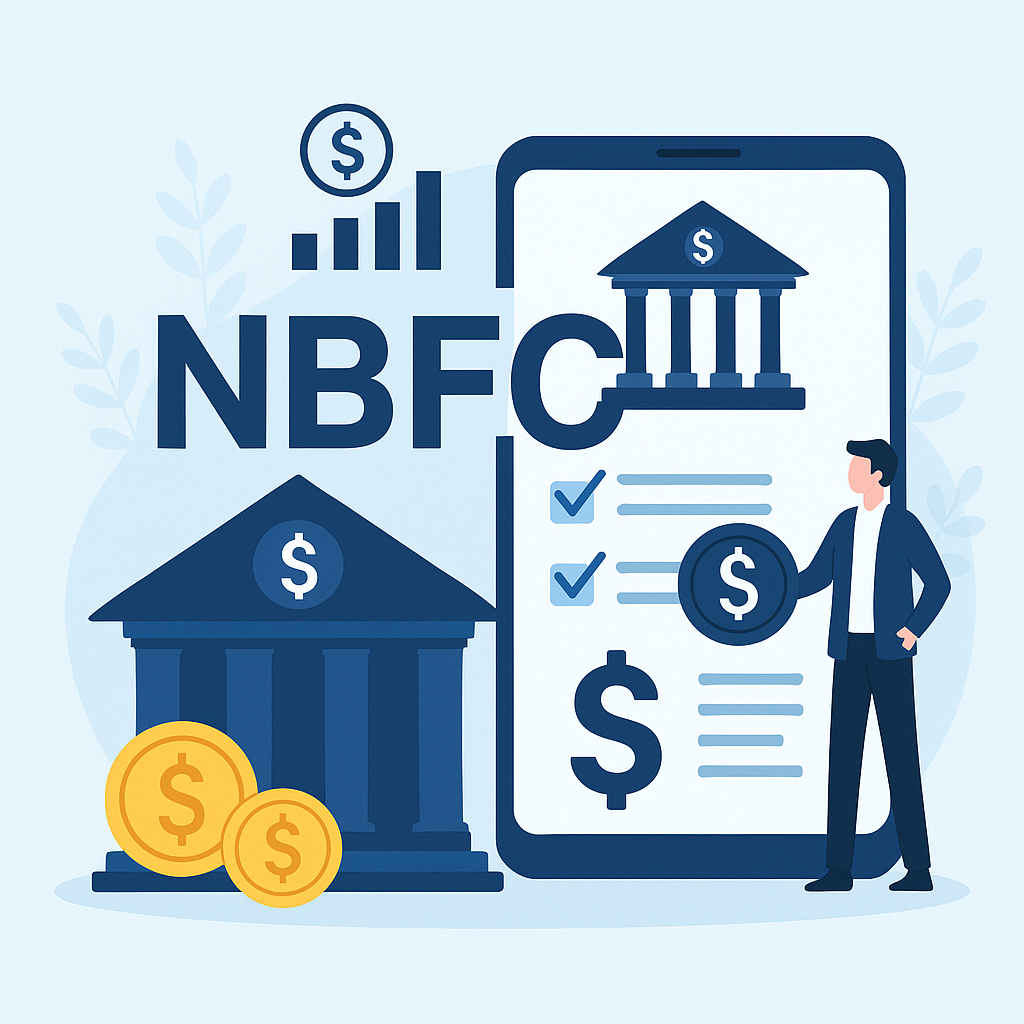Non-Banking Financial Companies (NBFCs)
What is an NBFC?
A Non-Banking Financial Company (NBFC) is a company registered under the Companies Act, 2013 (or earlier Companies Act, 1956) engaged in the business of loans, advances, acquisition of stocks, bonds, debentures, or securities. NBFCs provide financial services similar to banks but do not hold a banking license.
Key Characteristics
- NBFCs cannot accept demand deposits like savings or current accounts.
- They are regulated by the Reserve Bank of India (RBI) under Chapter III B of the RBI Act, 1934.
- They provide credit and lend money, especially to sectors underserved by banks.
- NBFCs play a crucial role in financial inclusion, particularly for MSMEs and retail borrowers.
Types of NBFCs (based on activities)
- Asset Finance Company (AFC): Engaged in financing physical assets like vehicles, machinery.
- Investment Company (IC): Primarily involved in acquiring securities.
- Loan Company (LC): Provides loans and advances for various purposes (other than asset finance).
- Infrastructure Finance Company (IFC): Provides finance for infrastructure projects.
- Core Investment Company (CIC): Invests mainly in group companies; holds at least 90% of assets in investments.
- Microfinance Institution (NBFC-MFI): Provides credit to low-income groups, typically through group lending.
- Housing Finance Company (NBFC-HFC): Provides loans for housing and housing-related activities.
- NBFC-Factor: Provides factoring services (receivable financing).
New Scale-Based Classification (as per RBI, 2021)
- Base Layer: Non-deposit taking NBFCs with limited scale and risk.
- Middle Layer: Larger NBFCs subject to stricter regulations.
- Upper Layer: Top NBFCs identified by RBI as systemically important, almost like banks in supervision.
- Top Layer (Optional): If the Upper Layer NBFCs show significant systemic risk, RBI may shift some to this layer for tighter monitoring.
NBFC vs. Banks
- NBFCs cannot issue cheques drawn on themselves; banks can.
- NBFCs cannot accept demand deposits; banks can.
- NBFCs are not part of the payment and settlement system; banks are.
- Deposit insurance by DICGC is not available for NBFC depositors.
Regulatory Requirements
- NBFCs must obtain a Certificate of Registration (CoR) from RBI to commence business.
- They must maintain a minimum Net Owned Fund (NOF) of ₹2 crore (₹10 crore for NBFC-MFI or NBFC-Factor).
- Must comply with prudential norms such as capital adequacy, asset classification, provisioning norms, etc.
- Submit periodical returns to RBI through the COSMOS portal.
Importance: NBFCs supplement the role of banks by providing financial services to sectors that may not be covered adequately by traditional banking, including MSMEs, transport operators, and low-income individuals.
